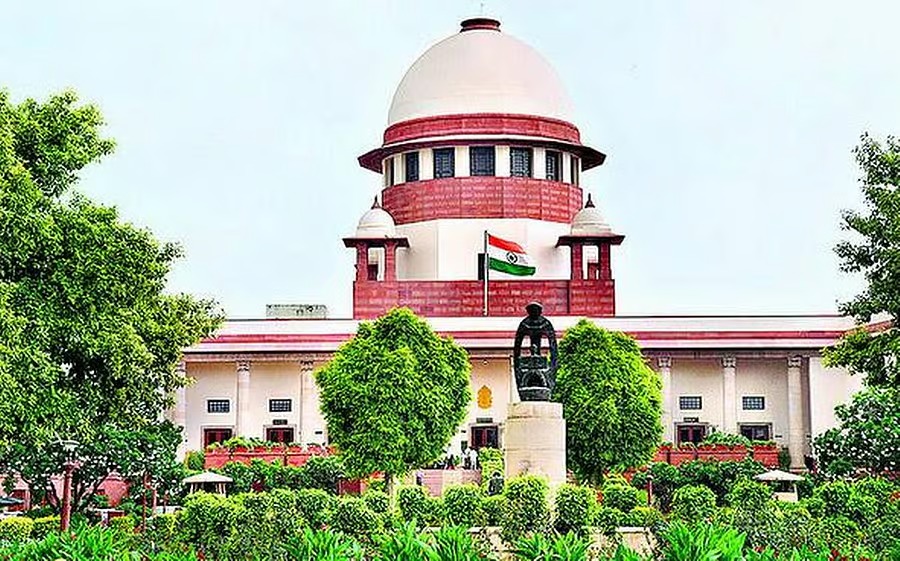Uniyal, J.@mdashThe question referred to this Bench is whether the opinion expressed in Abid Ali v. State 1958 ALJ. 333 that the expression "employer" in Section 2(6) of the U. P. Shops and Commercial Establishments Act, 1947 contemplates an owner of a shop who has engaged some employees to help him in running Ms business, is legally sound.
2. Section 2(6) of the U. P. Shops and Commercial Establishments Act (U. P. Act XXII of 1947) defines "employer" in these terms:
"A person having charge of or owning the business of a shop or commercial establishment, and includes the manager, agent or any other person acting in the general management or control of such shop or commercial establishment.''''
Section 4 of the Act provides that--
"Nothing in this Act shall apply to.....
(e) members of the family of any employer".
Section 10(1) of the Act provides that--
"Every employer shall close his shop or commercial establishment ..... on one day of the week, and such day shall ..... be referred teas ''the close day''."
3. The charge against the applicant was that he had kept his shop open on a Sunday which was notified to be ''close day'' by the District Magistrate. His defence was that he had not employed any person as servant or agent in his shop to carry on his business and, therefore, he did not fall within the expression "employer" as defined in Section 2(6) of the Act. The applicant placed strong reliance for his contention on the case of 1958 ALJ 333 (supra).
4. We may point out that subsequent to the decision of Abid All''s case 1958 ALJ 333 it has been held by a Division Bench of this Court in State v. Chandra Prakash 1958 ALJ 484 that the word "employer" in the U. P. Shops and Commercial Establishment Act is intended to include a commercial establishment or shop where no person was employed. We respectfully concur with the opinion expressed in 1958 ALJ 484 (supra) as in our view it is in accord with the terms of Section 2(6) of the Act.
5. The Legislature while defining the word "employer" has deliberately enlarged its ambit to include a person having charge of or owning the business of a shop or commercial establishment, and has not confined its meaning to a person employing someone to assist him in the conduct of his business. Therefore, Section 10 will operate in the case of every person having charge of or owning the business of a shop and every such person would be under a legal obligation to comply with the provisions of the Act, even though he may not have an employee working in the shop or commercial establishment.
6. It was also urged that Section 4 had created an exemption in favour of members of the family of an "employer" by providing that the Act shall not apply to them, and that, therefore, no offence would be committed, if a member of the employer''s family transacted business in the shop on a close day.
7. We find no substance in this argument because Section 10 makes it obligatory on an employer to keep his shop closed on. a ''close day''. He cannot evade the mandate of the law by asking the members of his family to keep his shop open on a close day. If he does so he would be guilty of the breach of the law.
8. A similar argument was raised before the Supreme Court in
"This (argument) is fallacious because the conviction here is not for the sale but for keeping the shop open on a closed day. Section 2-A (j) does not give the son a right to keep the shop open or, for that matter, a right to sell. All it says is that he, being a member of the family, shall not be affected by the provisions of the Act. Section 7(1), on the other hand, is directed against the owner of the shop and not against his family. It compels the owner to keep his shop closed one day in a week."
9. The provisions of Section 2-A (j) of the Punjab Trade Employees Act are in pari materia with Section 4(e) of the U. P. Shops and Commercial Establishments Act and the ratio of the decision of their Lordships of the Supreme Court applies with full force to the present case.
10. It was further contended by the learned counsel that the applicant as "employer" had full discretion to declare any day of the week as a ''close day''. According to him the initiative lay with the applicant to inform the District Magistrate that he wanted a particular day of the week to be observed as a ''close day'' in his shop. The argument was that the applicant was not bound to keep his shop closed on every Sunday and could keep it closed on any other day of the week. There is nothing on the record to indicate that the applicant had ever moved the district Magistrate for declaring a particular day as ''close day'' in his shop, nor is there evidence to show that the applicant had really closed his shop on any other day of the week. In these circumstances the order of the District Magistrate declaring Sunday as a ''close day'' for all commercial establishments in the town of Sultanpur was in accord with Section 10 of the Act.
11. This revision accordingly fails and is dismissed.

